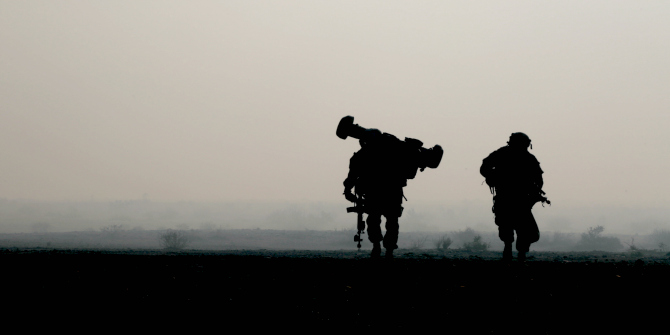 Corrupt, mismanaged, and seemingly hopeless: that is how some of the international community viewed Nigeria in the early 2000s. Then Nigeria implemented a sweeping set of economic and political changes in an attempt to reform the unreformable, writes Ngozi Okonjo-Iweala. This book aims to tell the story of how a dedicated and politically committed team of reformers set out to fix a series of broken institutions, and in the process repositioned Nigeria’s economy in ways that helped create a more diversified springboard for steadier long-term growth. Joel Krupa recommends the book to readers interested in the future of energy and the region.
Corrupt, mismanaged, and seemingly hopeless: that is how some of the international community viewed Nigeria in the early 2000s. Then Nigeria implemented a sweeping set of economic and political changes in an attempt to reform the unreformable, writes Ngozi Okonjo-Iweala. This book aims to tell the story of how a dedicated and politically committed team of reformers set out to fix a series of broken institutions, and in the process repositioned Nigeria’s economy in ways that helped create a more diversified springboard for steadier long-term growth. Joel Krupa recommends the book to readers interested in the future of energy and the region.
 Reforming the Unreformable: Lessons from Nigeria. Ngozi Okonjo-Iweala. MIT Press. October 2012.
Reforming the Unreformable: Lessons from Nigeria. Ngozi Okonjo-Iweala. MIT Press. October 2012.
Comprehensively describing petro-states is a difficult and constantly evolving task. Many energy pundits will confidently echo the famous words of former US Supreme Court Justice Potter Stewart and proclaim that “I know it when I see it”, yet few can do so in a concise, timeless manner (see Paul Gewirtz’s article ‘On “I Know It When I See It”’). In Daniel Yergin’s authoritative energy text The Quest, the plain-spoken Nigerian finance minister Ngozi Okonjo-Iweala provides one of the better efforts towards formulating perennial ‘petro-state definition’ relevancy: “If you depend on oil and gas for 80 percent of government revenues, over 90 percent of exports are one commodity, oil, if that is what drives the growth of your economy, if your economy moves up and down with the price of oil, if you have volatility of expenditures and of GDP, then you’re a petro-state”. Deleterious economic and social outcomes are almost inevitable whenever hydrocarbon-linked hot money ebbs and flows with the vagaries of international commodity markets. Within such a context, corruption, despotic regimes, and income inequality tends to flourish, while regulatory transparency, a sound financial sector, and the rule of law inevitably all suffer.
The aforementioned Okonjo-Iweala, a technocratic economist cum author, knows the dangers of such a scenario all too well. Fifteen years after the ouster of long-dominant military regimes (including that of the odious thief Sani Abacha), her recent book Reforming the Unreformable: Lessons from Nigeria provides an outstanding memoir about her experiences at the helm of Nigeria’s sometimes unwieldy economic restructuring. As the largest democracy in Africa and a crucial oil supplier, what happens in Nigeria truly matters at every scale from the local to the global – and Okonjo-Iweala shows us why and how it needs to change. Thoughtfully written, the prose contained in Reforming the Unreformable succinctly highlights the variety of difficult situations facing low-income, export-dependent energy producing nations, and it holds a smorgasbord of transferrable insights for scholars across the disciplinary spectrum. The Harvard-educated Okonjo-Iweala’s progressive views – stemming from a mix of time spent at the World Bank and a deep knowledge of sustainable economic principles – are on full display as she outlines the array of methods and techniques deployed by the country’s economic leadership, including among other things the successful spearheading of an innovative debt relief solution for sagging external debt overhangs and the not-so-successfully executed reform of graft-ridden Nigerian customs procedures.
Throughout the text, it is repeatedly reinforced that the barriers to success in Nigeria are unusually daunting. As a series of tables and graphs in the book’s Appendix deftly show, the country sits at or near the bottom of seemingly countless comparative metrics of well-being and governance – even when compared to other decidedly troubled Sub-Saharan African states. Nigeria, Okonjo-Iweala makes clear, is plagued by a complex colonial past and a problematic governance structure. No better example exists of these shortcomings than the constitution. Incredibly, Okonjo-Iweala elucidates how this antiquated framework stipulates that a hefty chunk of annual oil proceeds must be allocated to different levels of government, after which political leaders are provided with significant autonomy over spending, total immunity from prosecution while in office, and little to no transparency. A toxic combination with predictable consequences.
Energy analysts will especially enjoy two of the eight sections. The first focuses on fuel subsidy reform – a costly and regressive market distortion that, globally, diverts nearly 3% of GDP from far more useful expenditures like health care, education, and infrastructure spending (see International Monetary Fund for more details on this estimate). Nigeria, blessed with some of the largest oil reserves on Earth, must bear an especially huge burden, as little domestic refining capacity exists and the country is forced to send extracted resources overseas before importing expensive end-products like gasoline and diesel. Sensible and politically acute, Okonjo-Iweala realized that a total phase-out of this monstrously inefficient system was impossible, but a more targeted approach of subsidizing kerosene (a fuel used extensively by the poor) provided a compelling alternative. Sadly, such reformation attempts were largely unsuccessful, as the kerosene subsidies lasted only one year and petroleum product subsidies continue to cannibalize nearly $13 billion per year of the Nigerian budget.
Elsewhere in the text, energy-inclined readers will be intrigued by a more fruitful change. Macroeconomic volatility is a huge issue in the Nigerian petro-state; to counter this, an Oil Price-based Fiscal Rule (OPFR) was implemented that adopted a long-run average oil price for budget planning purposes. Okonjo-Iweala notes that such a measure required concrete political will, and Nigeria was fortunate to implement it during a time of especially low benchmark prices. This smoothing OPFR measure was tremendously successful, as it forced savings, decoupled government spending from unpredictable oil and gas reference prices, and discouraged unsustainable depletion of revenues – situations that invariably arose when short-term mindsets were more du jour. Other nations currently facing the so-called resource curse would do well to examine it.
At the conclusion of this work, one cannot help but wonder two things. First, it will be interesting to see if other energy-rich African states will be able to absorb some of the most poignant lessons outlined by this author. Preliminary evidence suggests there is cause for limited optimism; for example, major oil exporter Angola has recently announced the creation of a somewhat controversial sovereign wealth fund. Second (and despite any contentions to the contrary), it remains depressingly unclear whether Nigeria will ever be able to step back from the perennial economic, political, social, and environmental abysses that still define it, even as brave individuals like Okonjo-Iweala take a stand for a better future, the country’s industries attract ever larger amounts of foreign direct investment, and influential organizations like Goldman Sachs christen it part of the Next 11 list of the most promising 21st century economies. Swelling demographics, abysmal institutional frameworks, still-pervasive corruption, and ongoing sectarian warfare are – to say the least – disheartening. The future of Nigeria is uncertain, but even after reading about the inspiring work of Okonjo-Iweala, this reviewer remains less than hopeful.
—————————-
Joel Krupa is an energy and environment researcher at the University of Toronto, studying under Dr. Danny Harvey. He was educated at Oxford. Read more reviews by Joel.







1 Comments